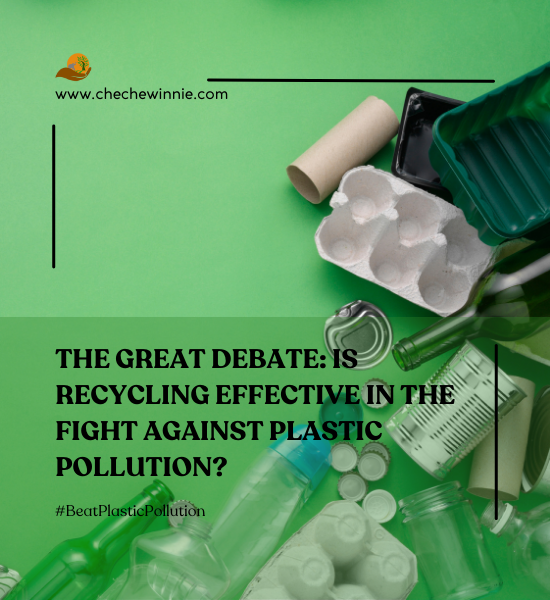Plastic pollution has reached alarming levels, prompting individuals, governments, and organizations worldwide to seek solutions. Recycling has long been hailed as a vital tool in combating plastic waste, but recent debates have arisen surrounding its effectiveness.
Understanding Recycling
Recycling involves the collection, processing, and transformation of used materials into new products. The aim is to reduce the extraction of raw materials and minimize waste sent to landfills.
In the context of plastic pollution, recycling plastic waste seems like a logical step to mitigate environmental damage. However, the reality is more complex.
The Challenges of Plastic Recycling
- Limited Recycling Infrastructure: One major challenge is the lack of comprehensive recycling infrastructure. Many regions lack the necessary facilities and resources to effectively recycle plastic waste, leading to inadequate collection and sorting processes.
- Contamination and Sorting Difficulties: Plastic recycling faces issues with contamination and sorting. Different types of plastics require separate recycling streams, but the diversity of plastic materials and their mixtures make sorting a challenging task. Contamination from food residue, labels, and other substances further hampers the recycling process.
- Economic Viability: The economics of recycling plastics are often problematic. Virgin plastic production is cheaper than recycling, leading to a price gap that discourages investment in recycling infrastructure. As a result, recycling rates remain low, especially for certain types of plastics.
- Downcycling and Limited End Markets: Recycling plastic often results in downcycling, where the quality of the recycled material is degraded, limiting its reuse options. Additionally, there is a limited market for recycled plastics, reducing the demand and financial viability of recycling efforts.
The Role of Extended Producer Responsibility (EPR)
Extended Producer Responsibility is a concept gaining traction worldwide. It places the responsibility for managing and recycling plastic waste on the producers themselves.
EPR incentivizes manufacturers to design products with recyclability in mind, use recycled materials, and take responsibility for the entire lifecycle of their products. Implementing robust EPR policies can help address the challenges associated with plastic recycling and improve its effectiveness.
The Importance of Reducing and Reusing
While recycling plays a crucial role, it should not be considered a panacea for plastic pollution. The emphasis must also be placed on reducing and reusing plastics. By reducing our consumption of single-use plastics and opting for reusable alternatives, we can significantly decrease the amount of plastic waste generated in the first place. This approach helps tackle the root cause of the problem and lessens the burden on recycling systems.
The Way Forward
To effectively address plastic pollution, a comprehensive approach is needed. This includes:
- Raising Awareness: Educating the public about the challenges and limitations of recycling can foster a better understanding of the issue and promote responsible consumption.
- Improving Recycling Infrastructure: Governments and businesses should invest in developing robust recycling systems, including enhanced collection and sorting processes, to improve recycling rates and reduce contamination.
- Advancing Technological Innovations: Continued research and development are necessary to develop advanced recycling technologies that can efficiently process and recycle different types of plastics.
- Embracing Circular Economy Principles: Shifting towards a circular economy, where materials are kept in use for as long as possible, promotes recycling, reuse, and responsible production, reducing the overall environmental impact of plastics.
- Advocating for Policy Changes: Lobbying for supportive policies such as EPR, plastic taxes, and incentives for using recycled materials can drive positive change and encourage responsible plastic management.
Conclusion
The effectiveness of recycling in the fight against plastic pollution is a complex and evolving issue. While recycling has its challenges, it remains an important part of the solution. However, it cannot be solely relied upon to solve the plastic pollution crisis. Reducing our consumption, reusing plastics, and implementing holistic approaches like extended producer responsibility is equally crucial. By adopting a comprehensive strategy that addresses the entire lifecycle of plastics, we can make meaningful progress in mitigating plastic pollution and safeguarding our environment for future generations.


We have pretty extensive recycling in the U.S. but I’ve always been a bit suspicious about how much of the recyclables that we put out for collection actually get recycled.
Thats the big question.